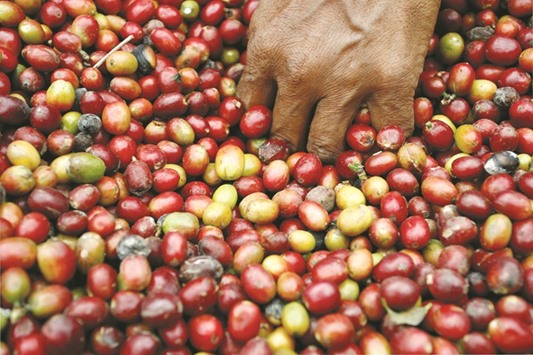Indonesia’s robusta coffee shipments are expected to remain slow in coming weeks due to fierce competition from Vietnamese supplies, prompting traders to focus on domestic and niche markets such as Egypt.
Indonesia is the world’s No 3 robusta producer after Vietnam and Brazil.
The Indonesian robusta harvest started around a month late, delayed by dry weather, and farmers have focused mainly on domestic sales in time for the Muslim fasting month of Ramadan now under way, trade sources said.
They quoted cash premiums of grade 2 Vietnamese robusta at $50 over September futures, compared with $110-150 over for grade 4 Indonesian, 80 defects coffee. “Price is the second problem (facing Indonesian exports). The first issue is about certainty of supply,” said Moelyono Soesilo, purchasing and operational director at PT Taman Delta Indonesia, a coffee exporter based in Central Java.
The delay in harvesting has constrained Indonesian robusta export flows.
“Indonesian robusta exports are slow because of the weaker production due to the El Nino weather pattern and the late start of harvesting,” said Shweta Upadhyaya, agricultural commodities analyst at Agrimoney. The main harvest, which usually occurs in May-June, was expected to take place in July-August this year.
The main focus of sales was currently to the domestic market.
“The internal market in Indonesia is very strong and almost 50% of the crop is retained and roasted there,” a European physical trader said. Indonesia exports its coffee to other Asian countries, including India for the low grades, the European trader added. Despite the competitiveness of Vietnamese supplies, Indonesia was expected to maintain strong sales to markets such as Egypt which have an established taste for its bigger, better quality beans.
“If you are used to a certain taste, you take what you prefer,” the European trader said, referring to the Egyptian market for Indonesian robusta.
The higher price of Indonesian robusta would not hold back sales, said Pranoto Soenarto, vice-chairman of the Association of Indonesian Coffee Exporters and Producers (AICE).
“No matter how much coffee Indonesia produces, the market will absorb it,” he said.

A farmer picks coffee fruits during a harvest in the Karo district in North Sumatra province. Indonesia is the world’s No 3 robusta producer after Vietnam and Brazil.
